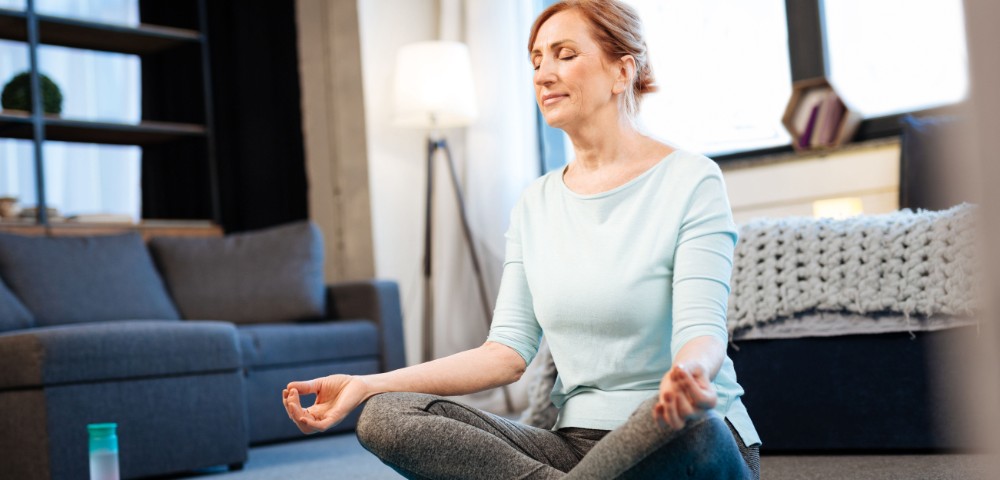How tapping into your mental well-being affects the aging process
Short of arresting Father Time or unearthing the Fountain of Youth, there is no way to prevent aging. However, studies have found that incorporating certain lifestyle changes can slow the aging process significantly. While diet and exercise play a key role, tapping into your mental well-being can be surprisingly effective, as are other mind-body connections.
Meditation
It all started in the 1980s when Nobel-prize winning biochemist Elizabeth Blackburn discovered an enzyme called telomerase, which is critical to cell survival. Telomeres can be found at the ends of DNA strands; the longer they are, the better. Telomerase helps rebuild telomeres and prevents them from shortening. Stress and an unhealthy lifestyle can cause telomeres to become shorter, meaning that cells will stop dividing, which accelerates aging.
Blackburn teamed up with psychiatrist Elissa Epel to study the effects of aging as well as the relationship between chronic stress and telomeres. In a study of 58 women, researchers found that those experiencing the most life stress (e.g., harried mothers) had the shortest telomeres and the lowest levels of telomerase. The researchers were able to quantify the stressed-out mothers’ telomeres, noting that it was consistent with an extra decade of aging compared to the lesser stressed women.
Though the research was initially met with skepticism, it eventually led to additional scientific research regarding the environmental effects of stress. It is now widely accepted that short telomeres are associated with certain age-related disease processes, and the original researchers believe that short telomeres can predict future health.
The two women continued to conduct small, real-world studies on the effects of meditation on telomeres, and the results were encouraging. For example, those who meditated for three months at a mountain retreat had 30% higher levels of telomerase; and dementia caregivers who performed a chanting meditation for 12 minutes a day over the course of eight weeks had higher telomerase activity than a control group listening to music.
Daily meditation does not have to be done at a retreat, in a class setting, or with a guru in the mountains; even just taking some quiet moments out of your day to be present and in the moment can be helpful, as can deep breathing exercises. Feeling relaxed is its own reward, and if it can stave off cell division, that’s an added benefit.
Setting Your Heart and Mind on the Right Path
Like a bicycle built for two, our bodies’ processes and systems work in tandem. If one part of your body is in good shape, it can positively affect another aspect of your body. Researchers recently found a correlation between cardiovascular health and cognitive aging: The better your cardiovascular health, the healthier your brain. Conversely, those subjects who had higher risk factors for heart disease experienced more cognitive decline.
The takeaway is to keep your heart— and thereby your brain— healthy by engaging in regular, heart-healthy exercises. Doing so can reduce your risk for stroke and dementia. In addition to exercise, other ways to increase your heart and brain health include controlling blood pressure, diabetes, avoiding smoking and eating healthy foods like whole grains, fruits, vegetables and fish while reducing salt, saturated fats, sugar and processed foods.
Regenerate Your Brain Cells
Conventional wisdom has always held that the brain cells you’re born with are all you’ll ever have. However, that notion has been challenged in recent years, with scientists now believing that brain cells can be regenerated. Tips to encourage neurogenesis, also known as cell regeneration, include:
- Get enough sleep
- Exercise regularly
- Eat a healthy diet. Some studies show that intermittent fasting and calorie restriction can help.
- Include omega 3s such as those found in fish and flavonoids, found in blueberries, cocoa and green tea, in your diet, as well as turmeric and olive oil
- Take a multivitamin to combat any nutritional deficiencies




